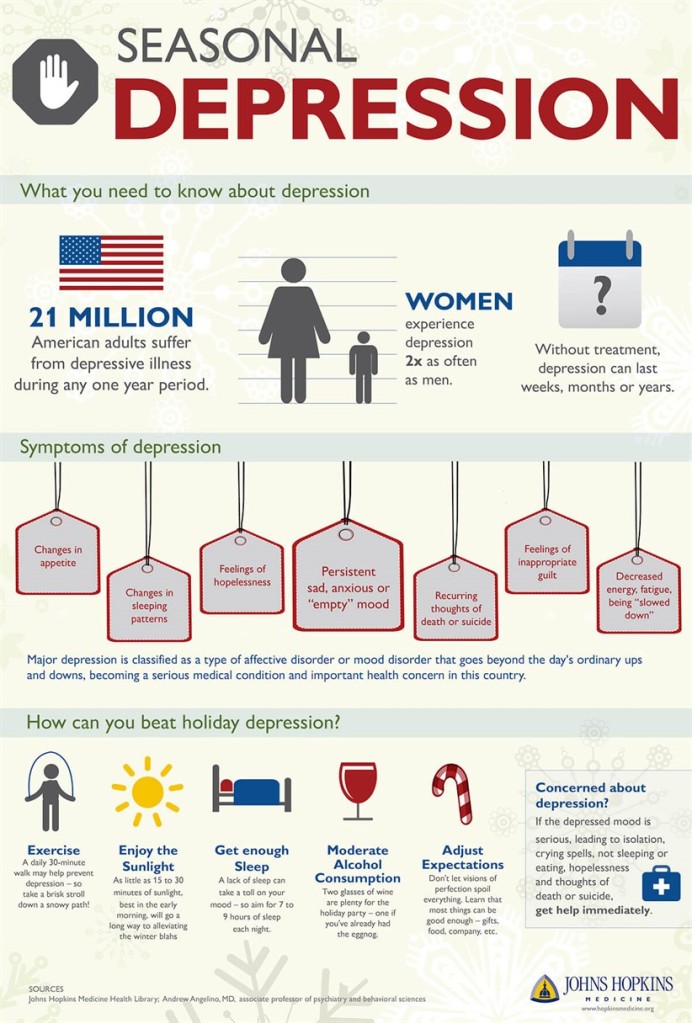Winter is Coming…Do you know about Seasonal Affective Disorder?
Greetings from the Accessibility Advisory Committee! As we all have probably noticed, it’s getting much darker. And for many, many people, this means that the symptoms of Fall Seasonal Affective Disorder (SAD) are becoming activated. SAD, a form of depression, is real; that’s a fact. This can make our work and personal lives significantly more difficult, but there are ways to combat it.
What is Seasonal Affective Disorder (SAD)?
According to Johns Hopkins Medicine, “Seasonal affective disorder, or SAD, is type of depression. It happens during certain seasons of the year—most often fall or winter. It is thought that shorter days and less daylight may trigger a chemical change in the brain leading to symptoms of depression.” There is also a variation of SAD that occurs in the Spring. Technically, SAD is not a “diagnosis” in the DSM-5-TR (the Diagnostic and Statistical Manual of Mental Disorders). The DSM describes this area as Depression with a “seasonal pattern” that begins in the fall or winter or spring. Less commonly, says the DSM, seasonal pattern may occur in the summer. Note that this is a part of Major Depressive Disorder as mentioned above.

What causes SAD?
The Mayo Clinic explains that SAD can typically be caused by a variety of factors. These might include:
- Your biological clock (circadian rhythm). The reduced level of sunlight in fall and winter may cause winter-onset SAD. This decrease in sunlight may disrupt your body’s internal clock and lead to feelings of depression.
- Serotonin levels. A drop in serotonin, a brain chemical (neurotransmitter) that affects mood, might play a role in SAD. Reduced sunlight can cause a drop in serotonin that may trigger depression.
- Melatonin levels.
How can we help our mental health in the winter?
A few useful measures individuals may take while feeling the stress of SAD are the following:
- A SAD lamp (a bright, LED “happy light”).
- Therapy
- Medications
- Exercise in the fresh air
- Surrounding oneself with greenery
It’s okay to want to curl up at home during the cold season; but those with depression should seek medical assistance if they are having thoughts of self-harm or suicide or contact the Crisis Line at 866-427-4747.866-427-474
Resources
- National Institute of Mental Health (NIMH): Seasonal Affective Disorder
- American Psychiatric Association (APA): Seasonal Affective Disorder
- Shoreline Community College Counseling Services
How are we doing?
Please submit feedback about the information that the Accessibility Advisory Committee shares to Miranda Levy via email at mlevy@shoreline.edu so that the committee can review together and serve the campus community better.

Recent Comments